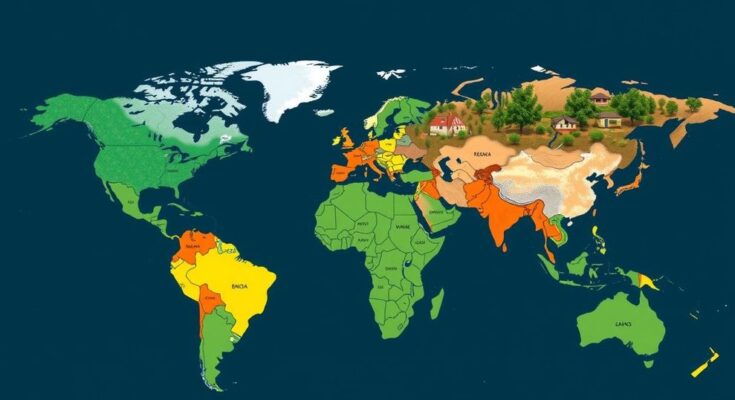Richer nations are beginning to offer compensation for climate-related damages to poorer countries. This initiative was highlighted by Cyclone Freddy’s impact in Malawi, where affected families like that of Christopher Bingala received funds to rebuild. Approximately $720 million has been pledged globally, although experts indicate this amount will fall short of needs as disasters worsen.
As climate change intensifies, richer nations are beginning to address the damages suffered by poorer countries through compensation programs. Such a program emerged following Cyclone Freddy’s devastation in Malawi, where residents like Christopher Bingala experienced significant losses. Provided with a payment of approximately $750, Bingala was able to rebuild his home and stabilize his family’s living situation. This payment represents a pioneering effort in funding specifically designed for what is termed ‘loss and damage’ caused by climate-related disasters. With notable contributions pledged by countries including the European Union and the United States, the total commitment has reached around $720 million, although experts caution that these funds will likely be insufficient considering the escalating frequency and severity of climate-induced disasters.
The concept of providing compensation for ‘loss and damage’ due to climate change has become increasingly pertinent as low-income countries, which contribute minimally to global greenhouse emissions, face the brunt of climatic disruptions. The funding arrangements, initiated at climate summits, aim to assist these vulnerable countries who are frequently affected by extreme weather events. As developing countries such as Malawi deal with the repercussions of catastrophic storms and rising sea levels, the international community’s response is evolving to include financial mechanisms for recovery and adaptation.
In conclusion, the emerging framework for loss and damage funding highlights a significant shift in international responsibility towards those most affected by climate change. Although initial financial pledges have been made, ongoing negotiations at climate summits will determine the efficacy and adequacy of these responses. The current situation underscores an urgent need for more robust funding systems, as escalating climate crises disproportionately impact low-income nations. Without substantive international action, the consequences will extend far beyond geographic boundaries, affecting global stability and security.
Original Source: www.kwit.org




